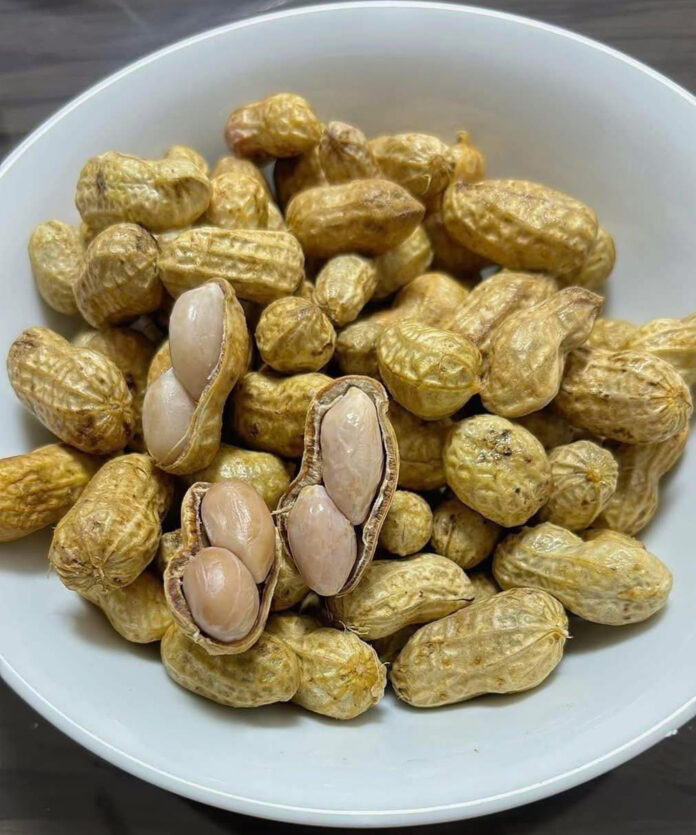The Peanut: Small Snack, Big Impact
Crunchy, flavorful, and found in everything from spreads to snacks, peanuts are one of the world’s most beloved foods. But while most people think of them simply as an afternoon treat, these humble legumes carry a fascinating mix of health benefits — and a few important warnings that shouldn’t be ignored.
Doctors and nutrition experts agree that peanuts can be a powerful addition to a balanced diet. Rich in protein, fiber, and healthy fats, they support heart health, boost energy, and help keep hunger under control. Yet, for certain people, especially those with allergies or specific health issues, peanuts — particularly boiled ones — may cause more harm than good.
Let’s take a closer look at what really happens when you make peanuts a regular part of your diet, and who should approach them with caution.
1. Why Peanuts Are Good for You
Peanuts are packed with nutrients that help keep your body strong and balanced. A handful of peanuts provides protein, healthy unsaturated fats, and essential vitamins like A, B6, and E. They also contain minerals such as calcium, phosphorus, and iron, along with beneficial compounds like lecithin, choline, and carotene.
These nutrients play important roles in maintaining healthy blood flow, supporting brain function, and even reducing the risk of heart disease.
1.1 Keeps You Feeling Full Longer
Peanuts are naturally satisfying. Their combination of protein, healthy fats, and fiber helps slow digestion, making you feel full for hours after eating.
Nutritionists recommend eating a small portion of peanuts or a spoonful of peanut butter at breakfast. This can help control appetite throughout the day and prevent overeating later on. It’s a simple, natural way to manage weight without skipping meals or feeling deprived.
1.2 Helps Stabilize Blood Sugar
Replacing red meat or refined carbohydrates with peanuts may help reduce your risk of diabetes. Studies show that eating peanuts regularly can lower the likelihood of developing type 2 diabetes by up to 21%.
This benefit comes from how peanuts slow down carbohydrate absorption, preventing blood sugar spikes and crashes. For best results, enjoy a few peanuts or a tablespoon of peanut butter in the morning to keep your energy steady throughout the day.
1.3 May Reduce the Risk of Certain Cancers
Research has found that women who eat peanuts at least twice a week may lower their risk of rectal cancer by more than 50%. Men who do the same may see a 25–30% reduction in risk.
Experts believe this is due to peanuts’ high levels of folic acid, antioxidants, and anti-inflammatory compounds — all of which help protect cells from damage that can lead to cancer over time.
1.4 Supports Liver and Gallbladder Health
Regular peanut consumption has also been linked to a lower risk of gallstones. Because most gallstones are made of cholesterol, the cholesterol-lowering effects of peanuts may play a role.
That said, moderation is key. Eating a small handful of peanuts a few times a week can be beneficial — but eating too much can lead to unwanted side effects, especially for those with sensitive stomachs or certain medical conditions.
2. Important Notes on Eating Boiled Peanuts
Boiled peanuts are a popular and nutritious snack, but doctors warn that they should be eaten in moderation.
Here’s what to keep in mind:
- Don’t overeat: Consuming more than 50 grams (about a handful) per day may cause weight gain, bloating, or digestive discomfort.
- Avoid eating on an empty stomach: Because peanuts are high in oil, eating them when hungry can stimulate too much stomach acid, leading to cramps or indigestion.
- Watch for mold: Moldy peanuts can contain aflatoxin, a highly toxic substance that increases the risk of liver disease and certain cancers. Always choose fresh, properly stored peanuts.
- Be cautious with blood thinners: Peanuts are rich in vitamin E, which can affect blood clotting. If you take anticoagulant medications, check with your doctor before eating peanuts regularly.
3. Who Should Avoid Eating Peanuts — Especially Boiled Ones
While peanuts can be healthy for most people, there are some clear exceptions.
3.1 People with Peanut Allergies
This is the most important warning of all. Peanut allergies can be severe and life-threatening. Even a trace amount can cause serious reactions, including:
- Hives and itching
- Swelling of the lips, throat, or face
- Difficulty breathing
- Dizziness or sudden drop in blood pressure
- In extreme cases, anaphylaxis, a life-threatening emergency
If you or a family member have ever had an allergic reaction to peanuts, eliminate them completely from your diet. Always read food labels carefully, since peanuts are often hidden in sauces, desserts, and packaged snacks.
3.2 People with Gout or High Uric Acid
Peanuts contain purines — natural substances that can increase uric acid levels in the blood. For people prone to gout, especially those already managing high uric acid, eating too many peanuts can trigger painful flare-ups.
If you enjoy peanuts, do so sparingly, and avoid them entirely during active gout attacks.
3.3 People with Weak Digestion or Chronic Bloating
Peanuts are high in fat and take longer to digest than other plant foods. For those with digestive issues — including older adults, people recovering from illness, or anyone prone to indigestion — boiled peanuts may cause bloating or discomfort.
Children under two should also avoid peanuts, as their digestive systems are not yet strong enough to process them safely.
4. The Bottom Line
Peanuts are more than just a snack — they’re a nutrient-dense food that can support heart health, manage appetite, and provide steady energy throughout the day.
But like most things in nutrition, balance is everything. A handful a few times a week can be incredibly beneficial, but overindulgence — or eating peanuts when your body can’t handle them — can lead to unwanted problems.
If you have allergies, gout, or chronic digestive issues, talk with your doctor before adding peanuts to your regular diet. For everyone else, enjoy them in moderation, choose high-quality, fresh peanuts, and avoid those that are fried or heavily salted.
That way, you can enjoy all their benefits — safely and deliciously.



